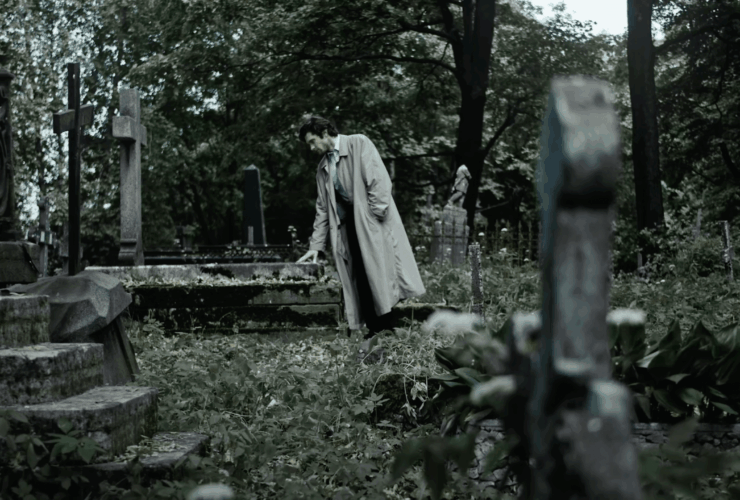Because of the promises of past prophets (Hag 1:9), the Jews who had returned from the Babylonian captivity may have been expecting God’s blessing. But as God informed them through Haggai the prophet, they were under His judgment instead: “You have sown much, and harvested little” declares the LORD. “You eat, but you never have enough; you drink, but you never have your fill. You clothe yourselves, but no one is warm. And he who earns wages does so to put them into a bag with holes…When one came to a heap of twenty measures, there were but ten. When one came to the wine vat to draw fifty measures, there were but twenty. I struck you and all the products of your toil with blight and with mildew and with hail…You looked for much, and behold, it came to little. And when you brought it home, I blew it away.” (Hag. 1:6, 9; 2:16-17) The reason God brought His judgment upon them was very simple. They had not put the Lord first. The people were more concerned with building their own homes than God’s house which had been lying in ruins for many years (Hag.1:9).
It was eighteen years earlier, in fact, that “the Persian king Cyrus had allowed thousands of Jews to return from Babylon to Judah. The Jews had begun rebuilding the temple but the opposition of the neighboring people had intimidated them and caused them to abandon their work…During the following years, they concentrated on building their own homes and growing their crops” [1] all the while growing spiritually complacent. So God raised up Haggai to wake them up from their spiritual apathy and complete the work. And just as a sidenote, the fact that God instructed the Jews to “Go up to the hills and bring wood and build the house” (Hag. 1:8) may indicate that the people had used the lumber which had been purchased a few years earlier for the temple) for their own houses (cf. Ezra 3:7.[2] If this is the case, then this is even more shameful.
“But seek first the kingdom of God and his righteousness, and all these things will be added to you.”
Matthew 6:33
The good news is that, unlike past generations, the people responded positively and rapidly to the prophet’s message and finished building the temple posthaste. They realized that they had been so focused on themselves that they had neglected their spiritual responsibilities. The temple was much more than just wood and stone after all. It was “the place where God’s people gathered for worship. [So w]hen the temple was in shambles, the Israelite’s relationship with God suffered.”[3] Also, “By using their time, talents and resources to build the temple, the people were honoring God,”[4] bringing Him pleasure and glory (Hag. 1:8), and ultimately advancing His kingdom instead of their own. As a result of their repentance and obedience, God relented from His judgment and quickly turned their poverty into prosperity (Hag. 2:18-19). Clearly, for Haggai (and all the Biblical writers for that matter), there is an intimate connection between obedience and blessing. Or better yet, “between obedience and the full presence of Yahweh.”[5]
While this tiny two-chapter book of Haggai was written all the way back in c. 520 BC to correct this specific situation, it is still as relevant to us today. Just like the Jews in Haggai’s time, God calls us to put our relationship with Him first and to focus on building His kingdom rather than our own. Jesus said it best in Matthew 6:31-33: “Therefore do not be anxious, saying, ‘What shall we eat?’ or ‘What shall we drink?’ or ‘What shall we wear?’ For the Gentiles seek after all these things, and your heavenly Father knows that you need them all. But seek first the kingdom of God and his righteousness, and all these things will be added to you.” This truth was also on full display when King Solomon asked God for wisdom rather than for riches and honor (1 Kings 3). Solomon put God’s kingdom before his own and as a result God blessed him richly. Therefore, we should do as Paul the apostle admonishes us to do: “Set your minds on things that are above, not on things that are on earth.” (Col. 3:2, see also Matt. 6:19-21) When we do that God will surely provide for our needs.

Ryan Hembree is a daily co-host, speaker, and writer of Bible Discovery. He also hosts a YouTube channel that shows the unity of the Bible and how science and Scripture fit together. Ryan also has an honorary Masters of Ministry in Creation Science from Phoenix University of Theology.
[1] NIV Quest Study Bible, Haggai Introduction, P.1392-93.
[2] F. Duane Lindsey, The Bible Knowledge Commentary: Old Testament, Haggai, P. 1539.
[3] The Jesus Bible, Haggai 2:7, Present and Future Hope in Christ, P.1441, Louie Giglio editor in chief.
[4] NIV Quest Study Bible, Note on Haggai 1:8, P. 1393.
[5] Paul R. House, Theological Interpretation of the Old Testament, Haggai, Kevin J. Vanhoozer general editor, P. 297.






